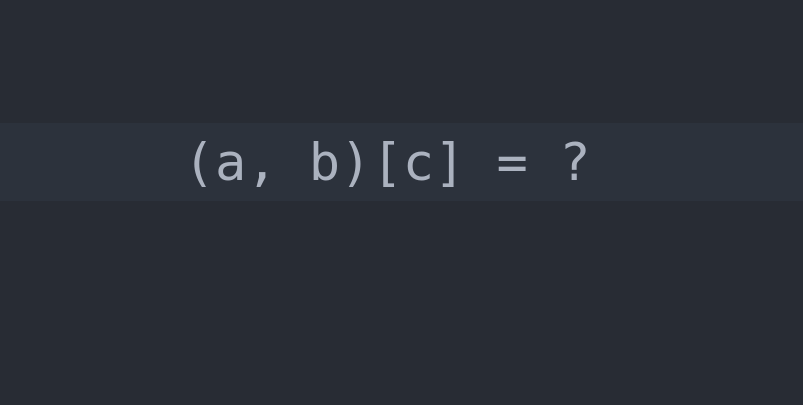I recently discovered an alternative to the standard construction of " expression_on_true if predicate else expression_on_false ", which I have not seen in directories:(expression_on_false, expression_on_true)[predicate]

How it works
- In parentheses, a tuple of two elements is declared.
- In square brackets, the predicate value is calculated.
- A tuple is accessed at index 1 (if the value of the predicate is True) or 0 (if the value of the predicate is False)
Let's look at an example
Suppose we have a , and we need to print “positive” if the number is not less than zero, or “nagative” if the number is less than zero.
>>> a = 101
>>> ("negative", "positive")[a >= 0]
'positive'
>>> a = -42
>>> ("negative", "positive")[a >= 0]
'negative'
>>> a = 0
>>> ("negative", "positive")[a >= 0]
'positive'
In the first case, 101> = 0, so the predicate returns True. When indexing, True turns to 1, so the call goes to the element with index 1. In the second case, the same: the predicate is False, the call goes to the element with index 0.Construction ("negative", "positive") [a> = 0] at least and not much shorter than "positive" if a> = 0 else "positive" , but I still find this feature interestingNote
(thanks to Dasdy )If instead of constants we substitute expressions into the tuple, of which only one should be executed, then this construction loses its meaning.